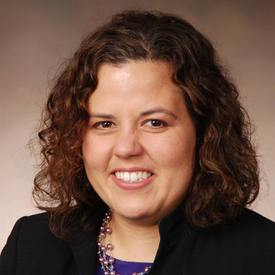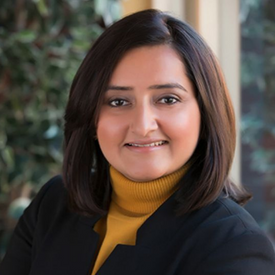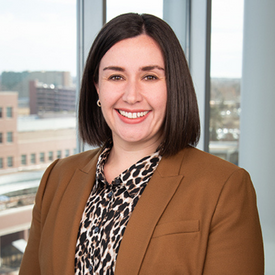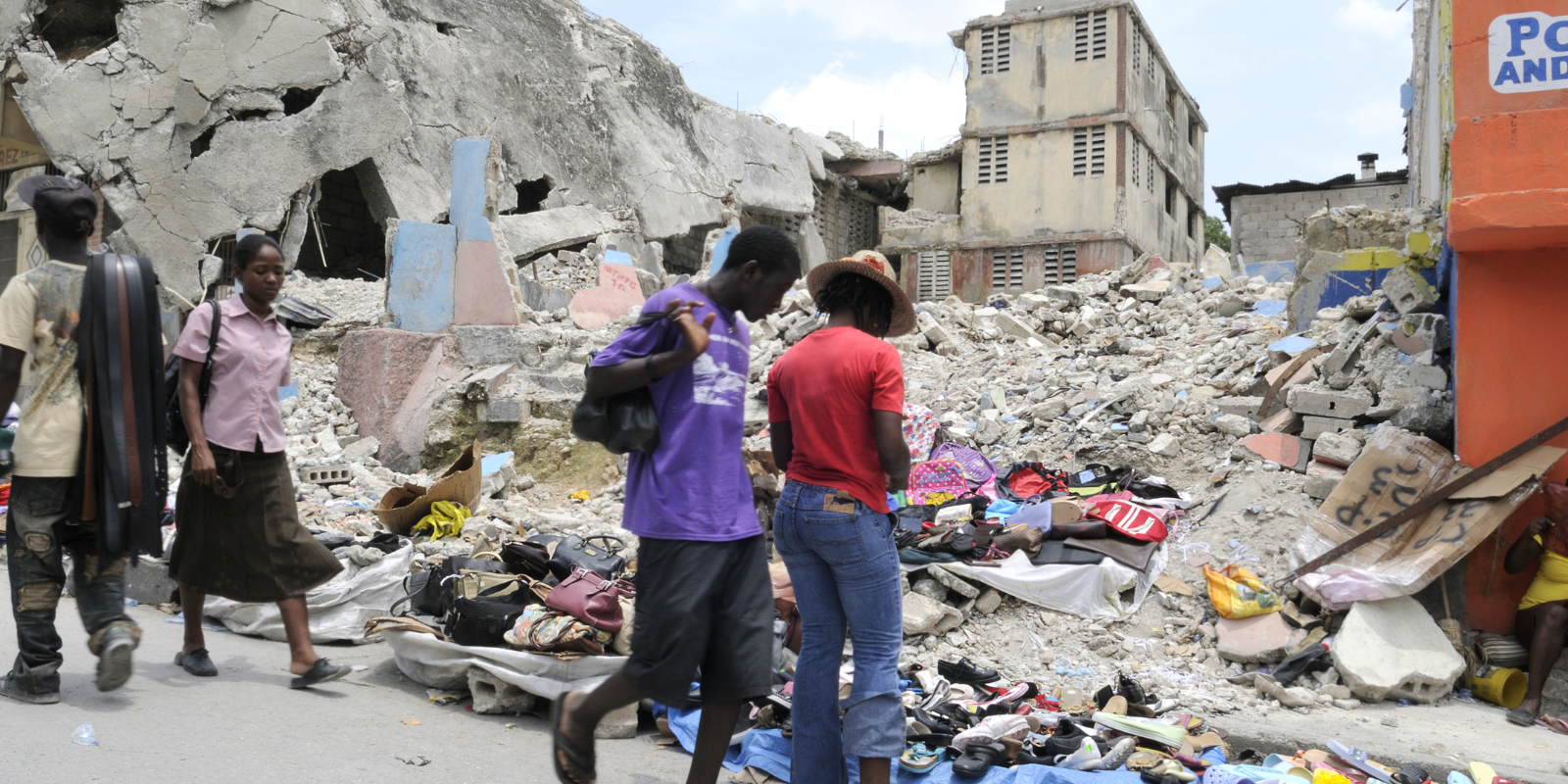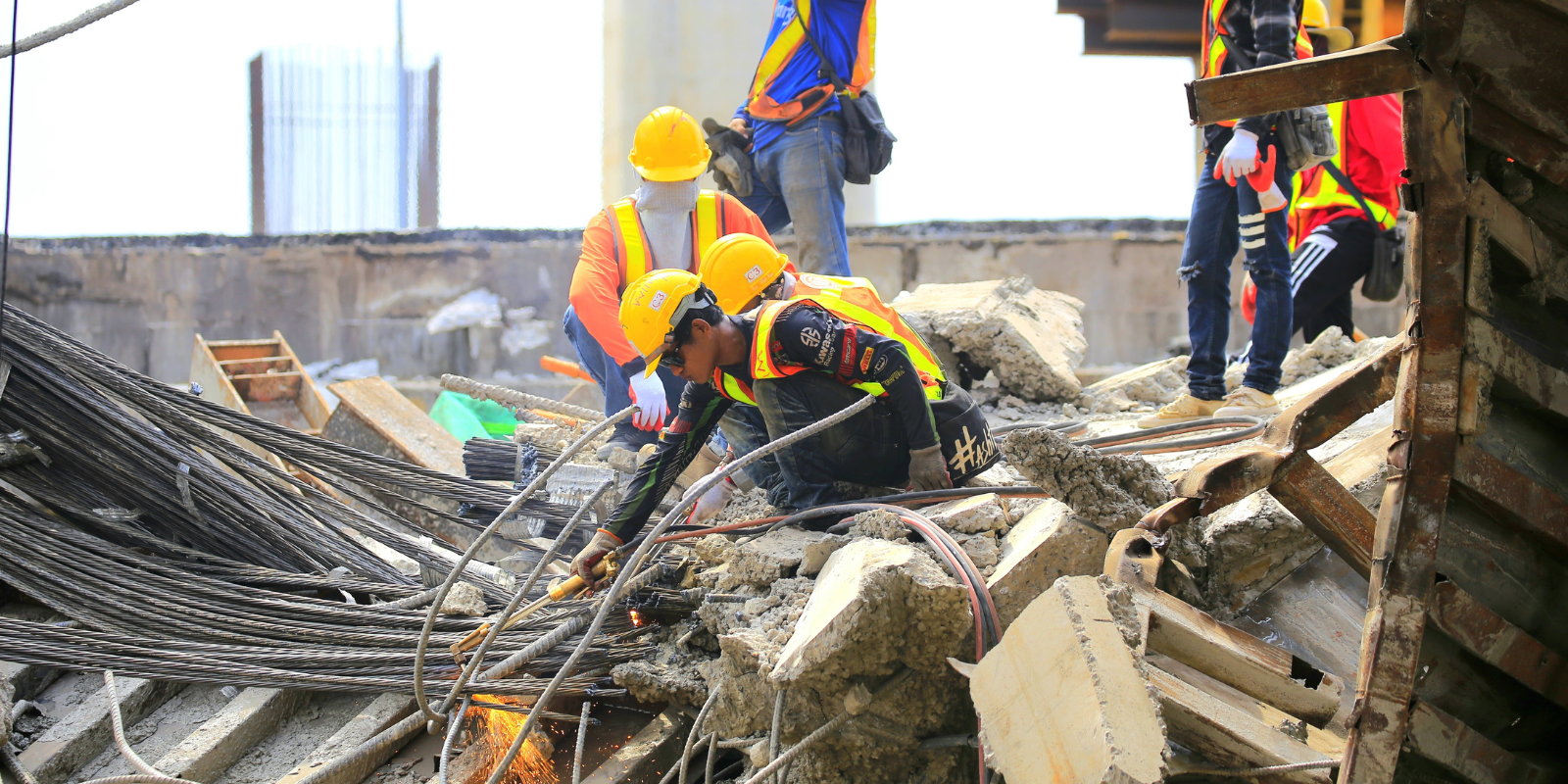Celebrating exceptional women on the University of Colorado Anschutz Medical Campus? No problem.
The women on this campus teach tomorrow’s healthcare experts, move science forward with breakthrough discoveries and care for patients during their most challenging times. They are medical pioneers, wives, daughters, sisters, friends, mothers, role models and heroes.
Throughout September, in recognition of the American Medical Association’s (AMA) Women in Medicine Month, we are recognizing a few of the extraordinary women who work in all aspects of the medical field on our campus. They share the significance of being a woman in medicine and the challenges of fulfilling their numerous roles during a worldwide pandemic.
Michelle Barron, MD: Fulfilling a lifelong dream and fighting a pandemic
Michelle Barron, MD, is a professor in the Division of Infectious Diseases at the CU School of Medicine. She works tirelessly on the front lines of the pandemic.
What does being a ‘Woman in Medicine’ mean to you?
Even though I came from a non-medical family, I decided I wanted to be a doctor at 4 years old. So being a woman in medicine is the fulfillment of a lifelong dream.
How has the COVID-19 pandemic affected you personally?
More than 4.7 million individuals have died related to COVID-19 infection. Two of my very close family members are represented in that number, and the impact of their loss and the loss of the many others who have died due to COVID-19 is immeasurable.
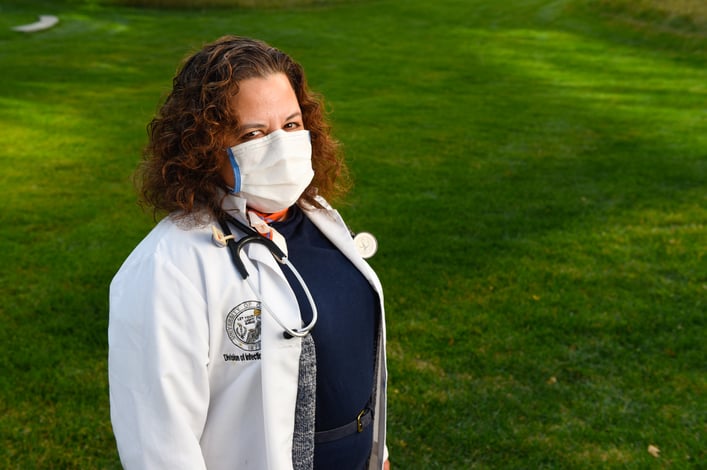 Michelle Barron, MD |
How has it affected your career in medicine?
Being a woman in medicine has shown me that the glass ceiling still exists, but we are making progress. Fifty percent of my medical school graduates were women, and the number of women going into medicine keeps rising. Women, and especially women of color, are still underrepresented in leadership positions. It is important for them to be able to reach these levels of achievement and for the medical field to adapt to allow women (and men) to be able to have a work-life balance that allows for success and satisfaction with their career and home life.
COVID-19 has allowed the opportunity for others to finally understand and appreciate the work that many of us do in the realm of infection prevention and infectious diseases. I have 20 years of infection-prevention experience under my belt, and it has served me well in terms of how we have responded to the COVID-19 pandemic.
Michelle Barron, MD |
Tamanna Tiwari, MPH, MDS, BDS: Learning from her mentors and paying it forward
Tamanna Tiwari, MPH, MDS, BDS, is a dentist and an assistant professor in the Department of Community Dentistry and Population Health and associate director of the Center for Oral Disease Prevention and Population Health Research at the School of Dental Medicine.
What does being a ‘Woman in Medicine’ mean to you?
Against all the odds, women have overcome professional and societal barriers to advance science and medicine. And today, being a ‘Woman in Medicine,’ or in my case, Dental Medicine, I stand on the shoulders of the women leaders who have lent a hand to the younger women faculty joining the field of medicine. I started my journey grateful to all the women who came before me and carved a path for us. I feel proud that I am part of a generation of women who are pushing all boundaries to bring better healthcare to our patients, investing their energies in research, teaching the future healthcare providers and breaking the glass ceiling. In addition, I have a responsibility to bring along all those whose voices may not be heard and build an equitable work environment where women faculty can go beyond surviving and thrive!
I have put my energies into building such environments as the president (2015-2018) of the International Association of Dental Research’s Women in Science Network. More recently, I co-edited a special issue of “IADR’s Women Pioneers: Celebrating a Century of Achievement” for the Advances in Dental Research journal that celebrated the women researchers in dentistry and discussed the topics of gender equity and the landscape of the dental research workforce.
![1Y6A2610[1]](https://news.cuanschutz.edu/hs-fs/hubfs/1Y6A2610%5B1%5D.jpg?width=828&name=1Y6A2610%5B1%5D.jpg)
CU School of Dental Medicine Dean Denise Kassebaum, DDS, MS, and Tamanna Tiwari, MPH, MDS, BDS |
How has the COVID-19 pandemic affected you personally?
Being an immigrant, I have family in other parts of the world, and that has been a concerning issue for me personally. This meant checking in daily with family and friends, supporting them in their stressful time on video calls and striving toward a work-life balance. It has been difficult. Also, having family members here in the U.S. as front-line workers and healthcare workers has been stressful during the pandemic.
How has it affected your career?
I am a researcher and educator in Dental Medicine, and the pandemic affected my work and career in several ways. My research is community-based and, at the beginning of the pandemic, I had to stop all my research activities as we could not go to the community sites. With lots of brainstorming with community and research partners, I pivoted to online data collection and engaging the communities via video calls. I had to quickly learn to teach online and be innovative in engaging my students.
The positive side of the pandemic was the overwhelming support that I received from the leadership at the CU School of Dental Medicine, the dean, the department chair and my mentors. I am fortunate to have mentors from different universities and cities, and at the beginning of the pandemic, it did not seem easy to connect with them. However, as online platforms became a thriving place to connect, having monthly calls and coffee hours with mentors and peers provided support in stressful times. These meetings provided a feeling of belonging to a group of women facing similar challenges. From a long-term perspective, the pandemic has highlighted that we need to learn to pivot according to circumstances, develop an equitable work environment and support each other.
Samantha Holden, MD: Pivoting into roles not previously part of plans
Samantha Holden, MD, is an assistant professor in the Department of Neurology at the School of Medicine. She currently practices in the Memory Disorders Clinic at UCHealth. With training in both behavioral neurology and movement disorders, Holden’s research focuses on cognition, behavior and quality of life in Parkinsonian conditions. Her current research projects include determining the best methods for predicting and diagnosing dementia in Parkinson’s disease as well as investigating non-pharmacological treatments, such as music therapy, for bothersome behavioral symptoms in dementia. She is interested in developing practical and personally meaningful interventions to improve quality of life for people living with neurodegenerative dementias.
What does being a ‘Woman in Medicine’ mean to you?
Women in medicine are expected to be all things to all people, to wear multiple hats, and juggle multiple roles. Women in medicine are expected to be the caring, empathetic listeners, but then shamed for not advocating strongly enough for themselves or working enough hours to be compensated equally to men in medicine (academic neurology has the largest gender salary gap of all specialties, at a $40,000 difference between men and women). But then speaking up for yourself or others gives you the label of a “difficult personality” when you're a woman in medicine. I've been told I “smile too much” by some patients, then told I “need to smile more” by others. We are held to different standards, whether implicitly or explicitly, by patients, support staff and colleagues.
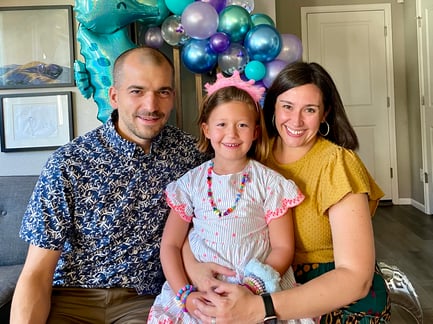
Samantha Holden, MD, with her husband, Patrick, and daughter, Eleanor |
How has the COVID-19 pandemic affected you personally?
As an outpatient subspecialist in neurology, I have thankfully been spared the grueling, heartbreaking work that many of my inpatient-based colleagues have experienced over the past 18 months. Leading the conversion of our entire CU Memory Disorders Clinic to telehealth-only visits for three months was stressful, but necessary to protect our older, vulnerable patient population. During that time, my then 4-year-old daughter was home with us, with no childcare, and my husband also working full-time remotely from home. Navigating caring for her and caring for a full schedule of telehealth patients with complicated neurodegenerative dementias simultaneously was incredibly challenging.
Many of our patients with dementia have experienced increased rapid declines in their condition since the start of the pandemic, likely related to social isolation, changes in routine and the collective sense of stress and dread we are all living through. We saw a significant increase in calls and messages from patient families, desperate for help with worsening cognitive and behavioral symptoms in their loved ones. Fielding these calls and messages often added another hour or two of clinical time onto each day.
When my daughter entered kindergarten last fall, my husband and I split up the duty of monitoring her remote schooling, based on who had a more forgiving schedule for a particular day. Being both a full-time physician and a stay-at-home mom was exhausting during this time. Thankfully, once it was safe to expand our quarantine bubble last fall, my mother was available to start helping with childcare, which has made an enormous difference in our daily lives.
How has it affected your career in medicine?
My career path has shifted significantly since the start of the pandemic, as I have taken on more administrative and clinical leadership roles that were not previously part of my plans. Since my medical training, I had been planning a career as a clinician-scientist, with an investigator-initiated research program focused on the optimal methods to detect and monitor cognitive impairment in Parkinsonian dementias. At the start of the pandemic, a recently awarded research grant was frozen, and my other active research projects were halted on campus. While some colleagues, without similar increases in responsibilities at home like childcare during lockdown, remained productive by writing and submitting manuscripts, I was stuck in limbo. The thought of writing papers and submitting grants during this period started to make me incredibly anxious. I could barely get through the days of clinic, fielding patient messages, answering emails and caring for my daughter. I felt stalled, unproductive and unmotivated. There were times I considered leaving medicine altogether, starting to investigate other potential careers through the summer and fall of 2020.
As the medical director of the CU Memory Disorders Clinic since 2019, administrative work started taking more time during the pandemic – adjusting schedules, converting visits to telehealth and making decisions regarding staffing and safety procedures. Around the time I was contemplating a complete career change, I was offered the clinical directorship of all of outpatient neurology at UCHealth. While initially opposed, I began to see administrative work as more stable and settled than continuing the “rat race” of grant submissions to fund my work. Discussions with trusted mentors and colleagues allowed me to see the potential benefits of this role, leveraging my administrative work in translational clinical research focusing on improving the diagnosis and care of dementia. Accepting this new role, while certainly an adjustment, has re-energized me and my clinical and scientific work. In addition, I will use all the power and leverage I have in this position to improve the systems and processes of our outpatient neurology clinics to reduce burnout and improve wellness for our group.

